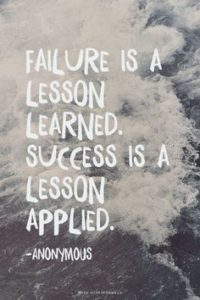 Hi everyone! I am back and ready to write again. Over the past couple of months, I have been going through some things emotionally. I’m sure when the time is right, I will share, but for now, I am going to keep it vague. In January, I lost a grandparent and it hit me harder than I thought it ever would. This spun me into a whirlwind of emotions, thinking about my life, where it is, where I would want it to be, and what it is not. I have been a rollercoaster the past couple of months. But, one thing holds true, I want more out of my life right now, and I will work hard to achieve my dreams.
Hi everyone! I am back and ready to write again. Over the past couple of months, I have been going through some things emotionally. I’m sure when the time is right, I will share, but for now, I am going to keep it vague. In January, I lost a grandparent and it hit me harder than I thought it ever would. This spun me into a whirlwind of emotions, thinking about my life, where it is, where I would want it to be, and what it is not. I have been a rollercoaster the past couple of months. But, one thing holds true, I want more out of my life right now, and I will work hard to achieve my dreams.
Nine years ago was my wedding day. Today would have been my ninth anniversary. But, life always has a way of working out. My husband and I divorced just a year after we were married. I spent a lot of time wondering why we even got engaged/married in the first place. I am not going to talk bad about him, as a relationship is always a two-way street. Let’s just say, we would have never worked out. For many years I thought it was because I was in a wheelchair. Even though he was partly responsible for my accident that caused my paralysis (while we were engaged). I don’t know what my life would be like today, if we stayed married. But, chances are, I would be very unhappy. From this experience, I grew stronger. I know what I want in a partner, what I will not put up with, and how I want that relationship to look. I do not look at this as a failed marriage, another failure in my life, but as a learning experience for a future relationship.
 Life throws us curve ball after curve ball. Just when we think our plan is working out exactly the way we want it to, suddenly something does not. Call it divine intervention, God’s plan, karma, plot twist, whatever you want to call it. Whatever it is that you call it, I will always consider it a learning experience. Sometimes I even yell “Plot twist!” out loud before moving on (I started this, obviously, after I saw the meme, but honestly, it feels good to yell). This is what I challenge everyone to do. Instead of thinking of something as a failure, consider it a learning experience. This will help keep negative cognitions away from your mind set. Remember, a positive mind equals positive vibes, which equals a positive life! Every negative cognition can be turned into a positive one. It is in these positive cognitions that growth happens.
Life throws us curve ball after curve ball. Just when we think our plan is working out exactly the way we want it to, suddenly something does not. Call it divine intervention, God’s plan, karma, plot twist, whatever you want to call it. Whatever it is that you call it, I will always consider it a learning experience. Sometimes I even yell “Plot twist!” out loud before moving on (I started this, obviously, after I saw the meme, but honestly, it feels good to yell). This is what I challenge everyone to do. Instead of thinking of something as a failure, consider it a learning experience. This will help keep negative cognitions away from your mind set. Remember, a positive mind equals positive vibes, which equals a positive life! Every negative cognition can be turned into a positive one. It is in these positive cognitions that growth happens.

Letting go of all the self-doubt, self-sabotaging thoughts is where the true power is held. And let me tell you, this is so hard! I am not pretending to be perfect and always positive. I still have my insecurities, my doubts, and, quite frankly, a lot of self-sabotaging thoughts and behaviors. Struggling with depression since college, having gone through all of my life’s experiences, this will be a very hard thing to completely stop. But, everyday, I continue to make the best possible choices, healthy choices, and identify what is causing me to think these self-sabotaging behaviors.
Identifying the cause is the first step to changing it. There are some cognitive distortions that cognitive-behavior therapists (CBT) have identified as causes of negative thoughts. A couple of them are catastrophizing, overgeneralizing, and polarized (all-or-nothing) thinking. These are ones that I tend to do often. Catastrophizing is like blowing a situation out of proportion. A small mishap is now a huge traumatic experience (just to exaggerate a little). Overgeneralizing is taking a single incident and applying it to every situation. One disappointment is expected to happen over and over again, in a never ending pattern in overgeneralization. And, polarized thinking is a person thinking they are either perfect or a complete failure. There is no middle ground in polarized thinking. There are 12 other cognitive distortions: filtering, jumping to conclusions, personalization, control fallacies, fallacy of fairness, blaming, shoulds, emotional reasoning, fallacy of change, global labeling, always being right, and heaven’s reward fallacy. A quick google search to find this article describes each of these distortions.
Simply identifying that these cognitions are happening is a first step to changing them. We can start by writing down that these are occurring, and what is causing them to occur. Over time, a pattern and triggers can be identified, and that is where the work comes in. After identifying the triggers, we can start to substitute other cognitions… positive cognitions. I do not suggest doing anything in huge chunks of change. Going back to a previous post when I mentioned the Kaizen Way, creating small changes that are easy to stick to is the best way to make big changes. First, just identifying the cognitions, then the patterns, then trying to change one cognition at a time. We aren’t born to be perfect, we are born to learn and grow and change from those experiences. 